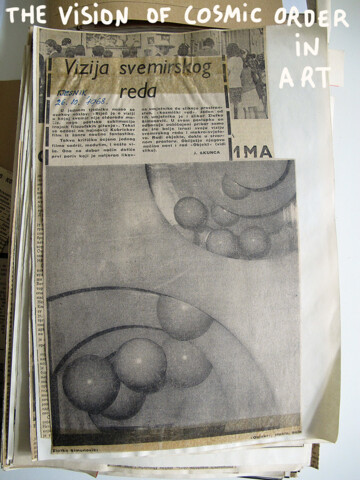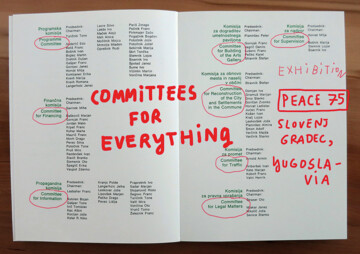In order to discuss the commons today especially in relation to art and culture and speaking from our particular location we must return at least 60 years back, to the 1950s, a period when Yugoslavia broke with the Soviet Union after it refused to submit to the Soviet domination which left it in cultural, economic and political isolation from the rest of the socialist bloc. That also meant that Agitprop department which until then controlled all cultural happenings in Yugoslavia (Agitprop took after the Soviet model and was controlled by the Yugoslav communist party) was abolished. Subsequently, all these changes lead to the development of a new kind of state cultural politics – the one based on self-management principles and later on also on Yugoslavia’s active role in the Non-Aligned Movement.
However, deliberations on the socialist cultural politics might sound anachronistic or even conservative especially if observed in the light of current museological discourses on the so-called new prototypes of art institutions, usership / uses of art, educational turn, participation in art, etc.
In addition to all these categories, the very notion of “working class” (which held the main position in self-management system) has also become obsolete, especially due to the fact that in most of the Western world immaterial labor has to a large extent replaced industrial work. Compared to the now historical proletariat the contemporary cognitariat does not constitute a class. Seen in this light the socialist self-managed museums or more precisely the content which such museums provided could be considered today as reactionary, subordinated to the state, ideologically restricted, while favoring conventional art formats, didactic means of providing knowledge about art and so on.
But, on another level, can we still even consider the question of class struggle and class struggle related antagonisms within the art institutions nowadays as used to be the case in Yugoslavia? What about the dichotomy between elitism, intellectual elitism included and social and political engagement in such institutions? Or to put it terms of a more modern vocabulary: How does the process of commoning (a social process that creates and reproduces the common) happens within the cultural field today?

![Slika, kip i prostor [Painting, Sculpture and Space]](/website/var/tmp/image-thumbnails/0/1243/thumb__logo/F113-2i_1960.jpeg)
![“Kugla kao simbol [Sphere as a Symbol]”](/website/var/tmp/image-thumbnails/0/1246/thumb__logo/F114_4f_1970.jpeg)



